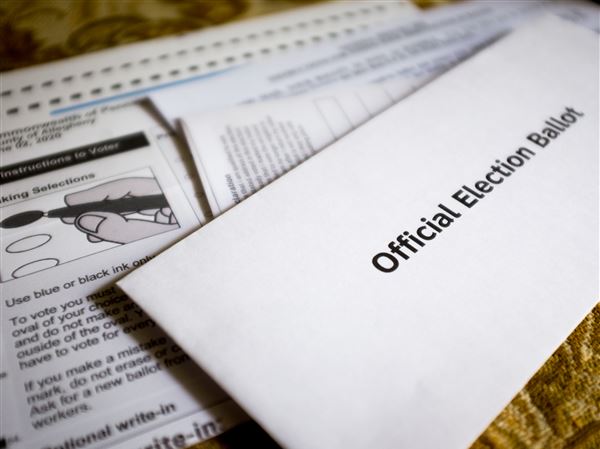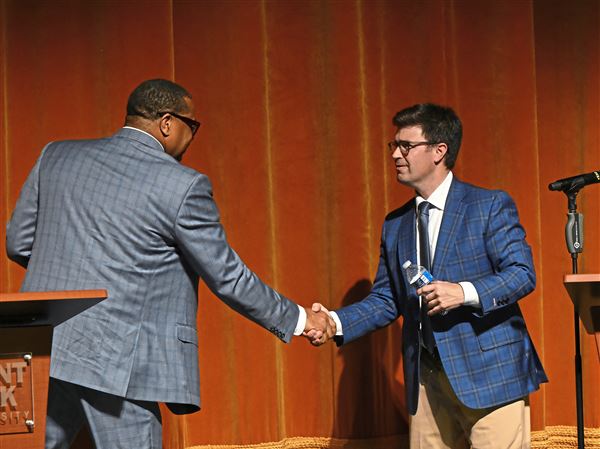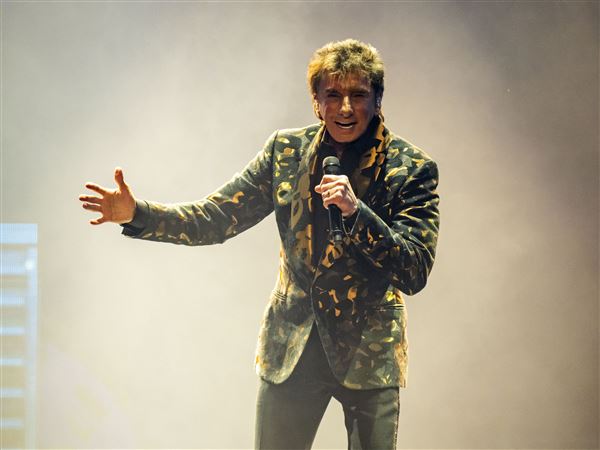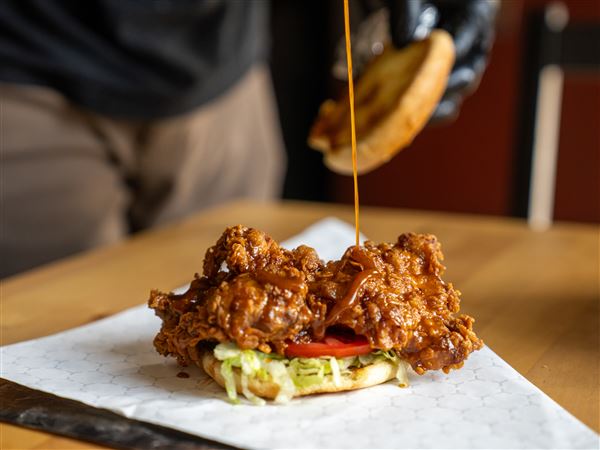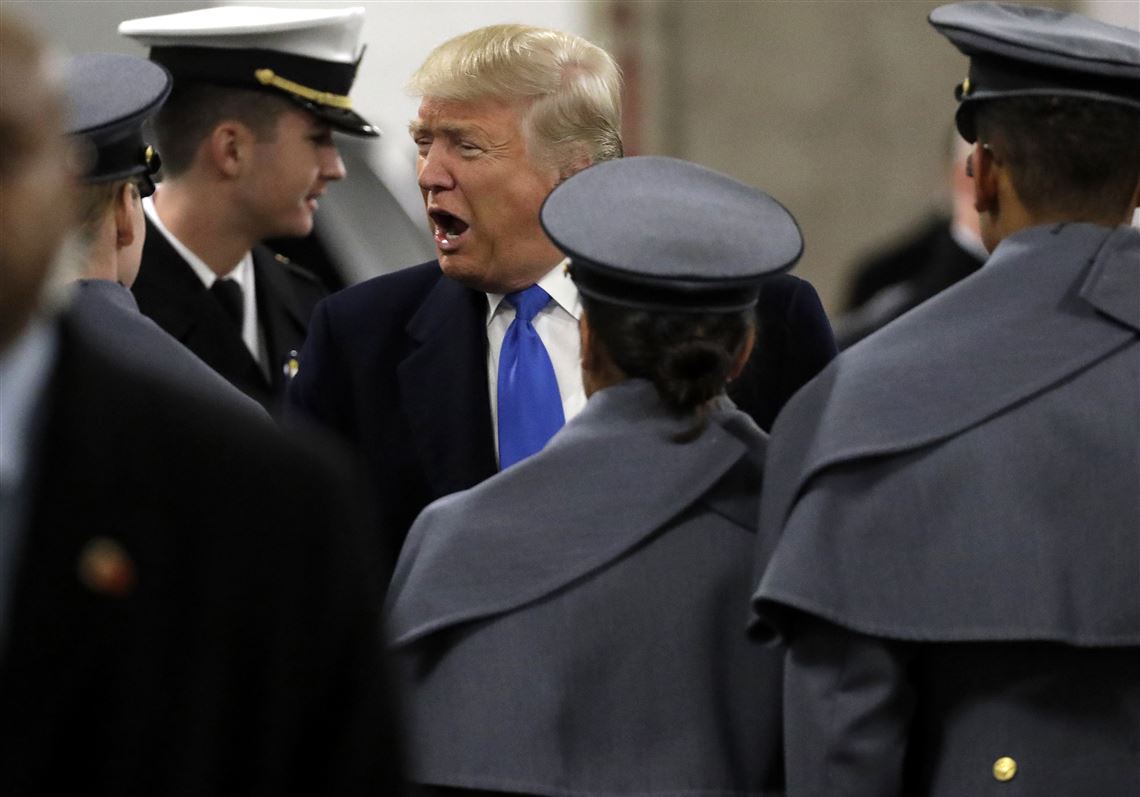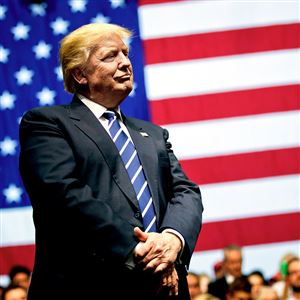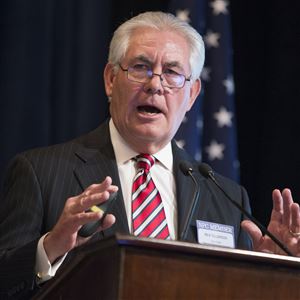The simmering distrust between Donald Trump and U.S. intelligence agencies escalated into open antagonism Saturday after the president-elect mocked a CIA report that Russian operatives had intervened in the U.S. presidential election to help him win.
The growing tensions set up a potential showdown between Mr. Trump and the nation’s top intelligence officials during what some of those officials describe as the most complex threat environment in decades.
The Washington Post reported Friday that the Central Intelligence Agency had determined that Russia had intervened in the presidential election not just to make mischief but to boost Mr. Trump’s chances.
Mr. Trump, in a statement issued by his transition team Friday evening, expressed complete disbelief in the intelligence agencies’ assessments.
“These are the same people that said Saddam Hussein had weapons of mass destruction,” Mr. Trump’s team said, adding that the election was over and that it was time to “move on.”
Mr. Trump’s reaction will probably deepen an existing rift between Mr. Trump and the agencies and raised questions about how the government’s 16 spying agencies will function in his administration on matters such as counterterrorism and cyberwarfare.
“Given his proclivity for revenge combined with his notorious thin skin, this threatens to result in a lasting relationship of distrust and ill-will between the president and the intelligence community,” said Paul Pillar, former deputy director of the CIA’s Counterterrorism Center.
U.S. intelligence officials described mounting concern and confusion about how to proceed in an administration so openly hostile to their function and role. “I don’t know what the end game is here,” a senior U.S. intelligence official said. “After Jan. 20,” the official said, referring to Inauguration Day, “we’re in uncharted territory.”
Mr. Pillar added: “Everything Trump has indicated with regard to his character and tendencies for vindictiveness might be worse” than former president Richard Nixon, who also had a dysfunctional relationship with the intelligence community.
The tensions between Mr. Trump and spy agencies could escalate even further as dozens of analysts begin work on a project, ordered by President Barack Obama, to deliver a comprehensive report on Russian intervention in the election before Mr. Trump’s inauguration in January.
Led by Director of National Intelligence James Clapper Jr., the investigation is aimed at reaching a definitive judgment about the Russian role in the election. Mr. Obama aides have pledged to make as much of the report public as possible once it is completed.
“We want to make sure we brief Congress and relevant stakeholders, like possibly state administrators who actually operationalize the elections,” White House spokesman Eric Schultz told reporters Friday.
But such a report could also pose a more complicated challenge for Mr. Trump, potentially pitting the entire U.S. intelligence community against a newly sworn-in president who has repeatedly denigrated their work.
The Post reported late Friday that the CIA had concluded that individuals with close ties to the Russian government delivered thousands of hacked emails from the Democratic National Committee, including from Hillary Clinton’s campaign chairman, to WikiLeaks a few weeks before the election. Intelligence officials have determined that Russia’s goal was to help Mr. Trump win, rather than simply undermine confidence in the election.
In a statement, Mr. Trump suggested that the CIA had discredited itself over faulty intelligence assessments about Iraq’s weapons stockpile more than a dozen years ago.
“These are the same people that said Saddam Hussein had weapons of mass destruction,” he said.
The belittling response alarmed people in the intelligence community, which already has questioned Mr. Trump’s temperament and lack of national security experience. Despite mounting evidence over Moscow’s involvement in a hack of the Democratic National Committee, Mr. Trump has consistently refused to entertain any doubts about the Russians’ role or about Russian President Vladimir Putin.
The president-elect has spoken admiringly of Mr. Putin in the past, calling him a stronger leader than Mr. Obama, and one of Mr. Trump’s former campaign managers had business associations with Russian companies.
“I don’t believe it. I don’t believe they interfered,” Mr. Trump told Time magazine of the Russians in a recent interview during which he suggested the accusations from the United States were politically driven.
Instead, Mr. Trump took direct aim at the professional spies charged with assessing what Mr. Clapper in September called the “most complex and diverse array of global threats” in his 53 years of service.
Intelligence agencies are tracking Russia’s military interventions in Syria and Ukraine, Iran’s compliance with the nuclear deal, North Korea’s nuclear weapons testing and China’s maritime challenges in Asia and theft of trade secrets. The CIA is operating a covert program to arm and train moderate rebels in Syria to overcome the brutal rule of President Bashar Assad, even as Mr. Trump has praised Russia’s approach to backing Assad.
Since his electoral triumph last month, Mr. Trump has attended only a limited number of intelligence briefings, and he appointed as his national security adviser retired Lt. Gen. Michael Flynn, who was forced out of his job as head of the Defense Intelligence Agency by Obama administration officials.
Mr. Trump also has created a climate of uncertainty over how his administration would approach counterterrorism and intelligence gathering after speaking approvingly of torture methods, including waterboarding terrorist suspects, which was banned by Obama. Trump has since appeared to moderate his position after meeting with retired Marine Corps Gen. James Mattis, who he intends to nominate as defense secretary and has said such techniques don’t work.
Mr. Trump’s transition aides have explained his unwillingness to make time for more intelligence briefings as a consequence of his busy schedule building an administration and selecting Cabinet members. Vice President-elect Mike Pence has reportedly attended such briefings most days.
But Mr. Trump’s approach has contrasted with his predecessors, including Mr. Obama and George W. Bush, who attended multiple briefings each week leading up to their inaugurations.
In his statement, Mr. Trump emphasized that the election was over and vowed to “move on,” and he did not, as is his habit, react to the CIA story on social media in the hours after it was published.
Congressional Democrats have called for investigations into Russia’s interference, but reaction among Republican leaders was divided. Sens. John McCain (Arizona) and Lindsey Graham (South Carolina) vowed to pursue the matter, but Sen. John Cornyn (Texas) said Russia has been involved in cyberattacks for years and said the new allegations were “serious, but hardly news.”
Mr. Trump’s handling of questions regarding Russian intervention will put enormous strain on his nominee to lead the CIA, Rep. Mike Pompeo, R-Kan., who may find himself caught in the crossfire between the agency and his president. Mr. Pillar said he already has concerns about Mr. Pompeo’s ability to deliver impartial views to the White House.
Mr. Pompeo, along withMr. Flynn and Mr. Mattis, has been a strident critic of the Iran nuclear deal, and Mr. Pillar wondered whether Mr. Pompeo would be a dispassionate actor if intelligence agencies conclude that Iran is abiding by the deal.
“I see the danger of a lasting dysfunctional relationship based on the president-elect’s perception that he is being wronged by the intelligence community,” Mr. Pillar said.
Meanwhile, in Moscow, the Kremlin didn’t even bother to deny the allegations that itMr. Trump win.
It let the president-elect’s team do the talking.
“Some in the United States are still trying to challenge the election,” a Russian state television host said Saturday, introducing a report by The Washington Post that the CIA concluded Russia intervened in the 2016 election on the Republican’s behalf. “But Donald Trump’s team has sarcastically dismissed the latest effort.”
The program cut to an enlarged translation of the Trump team’s statement, which a reporter read aloud in Russian.
On Saturday, Kremlin spokesman Dmitry Peskov declined to comment on The Post’s article.
Moscow has regularly denied interfering in the elections, especially after U.S. intelligence agencies in October said the Russian government helped provide WikiLeaks with hacked emails from the Democratic National Committee and Hillary Clinton’s campaign staff.
Mr. Putin dismissed the allegations as “hysteria” intended “only to distract the attention of the American people from the substance of what hackers had put out.”
The New York Times contributed.
First Published: December 11, 2016, 5:00 a.m.

